Nigerian journalist Chido Onumah spoke to Peoples Dispatch about the country’s new president, Bola Tinubu. He explained the controversy in Tinubu announcing an end to fuel subsidies. Chido also explained the agenda of the new president and the political climate in the country following the controversial election.
Related Articles
Related Articles
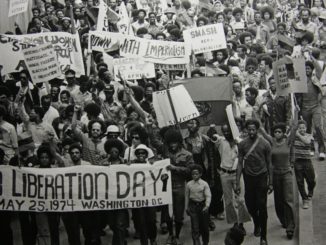
African Liberation Day & Q&A with Kwame Nkrumah’s Son, Gamal
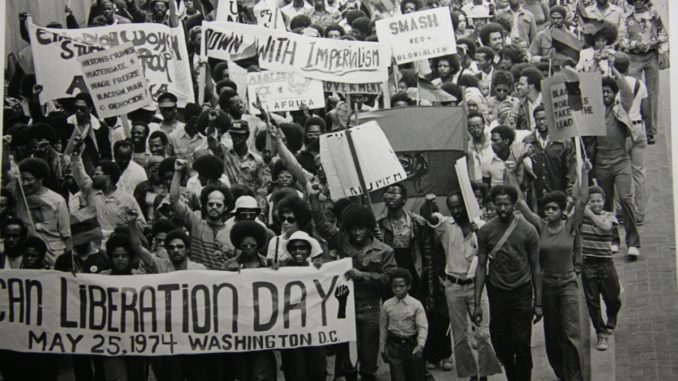
Editor’s Note: The following is excerpted from the Black Alliance for Peace’s AFRICOM Watch Bulletin.
African Liberation Day (ALD), celebrated on May 25, has its origins in the long struggle of African people to liberate themselves from European domination and white supremacy. It is a time in which we emphasize our oneness as a people with a common past, common set of problems and a common future.
The capture of millions of African people, who were enslaved and introduced into the Western Hemisphere as property and commodities, is the backdrop upon which we commemorate ALD. The colonial-capitalist system imposes a divide between the millions of Africans kidnapped to the Americas during the Transatlantic slave trade and those left on the African continent.
ALD is a vehicle to continue to highlight the problems, challenges and the future of African people everywhere. The challenges facing Africa and African people worldwide require that we remain dedicated to the cause of Africa’s liberation. We can continue to showcase that dedication by actively participating in ALD activities held throughout the world.
U.S. Out of Africa: Voices from the Struggle
Gamal Nkrumah is a Ghanaian journalist, a Pan-Africanist and an editor of Al Ahram Weekly newspaper. He is the eldest son of the first president of Ghana, Kwame Nkrumah.
AFRICOM Watch Bulletin: Could you speak about the history of African Liberation Day?
Gamal Nkrumah: May 25th is celebrated as African Liberation Day. The day marks the foundation of the Organization of African Unity (OAU) in Addis Ababa, Ethiopia in 1963. The formation of the OAU was a key moment in a centuries-long struggle against colonialism, capitalism, and imperialism.
For more than 500 years, African people have been dehumanized and degraded, with their bodies and labor commodified to enrich a ruling elite. From slave labor on cotton and sugar plantations to the extraction of gold and diamonds from the earth, the development of Europe and the Americas happened through the rapid exploitation of African people.
Through the collective experiences of deprivation, African people in the diaspora and continent developed a resistance movement. There were many milestones in this process: the formation of independent, maroon communities by former slaves and Afro-Caribbean people, the first Pan-African congress held in 1900, the fifth Pan-African Congress in Manchester, 1945.
Over the decades, political consciousness grew around the necessity to wage a revolutionary, Pan-African struggle against colonial and imperial rule in the 20th century. The revolutionary anti-colonial movements culminated in the mid-century with the independence of several African nations from European powers and the formation of the Organization of African Unity.
AWB: How does ALD relate to the struggles of African people today?
Gamal Nkrumah: African Liberation Day, as it came to be known, was born from the fierce fight for a new society. As Kwame Nkrumah said, “The African Revolution, while still concentrating its main effort on the destruction of imperialism, colonialism and neocolonialism, aims at the same time to bring about a radical transformation of society. The choice has already been made by the workers and peasants of Africa. They have chosen liberation and unification… for the political unification of Africa and socialism are synonymous. One cannot be achieved without the other.”
Today, capitalism continues to brutally ravage and exploit Africa and its people. The West, through their militaries as well as the IMF and World Bank, have consistently imposed a neocolonial agenda on the continent, and the Organization of African Unity, now known as the African Union, is a puppet of capital and elite interests.
African people on May 25 celebrate the victories of revolutionary Pan-Africanism. African Liberation Day recalls the long history of struggles against class exploitation, colonialism and imperialism.
Revolutionary Africans know that attaining full emancipation demands a revolution from below, in the interests of people over profit. The only antidote to this colonial-capitalist system that continues to impoverish African people is an organized force in Africa ready to pursue Pan-Africanism under scientific socialism.
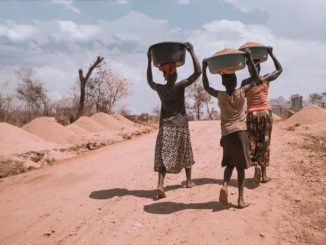
Ahead of COP26, African Countries Reject EU Trying to Back Out of Climate Finance Talks
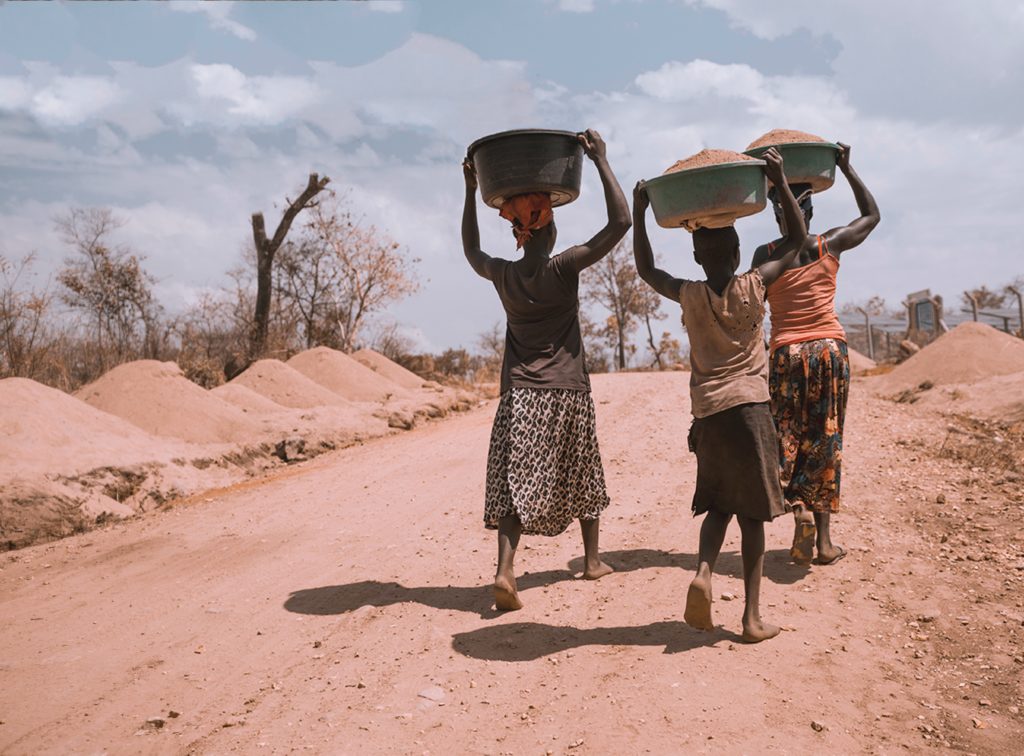
With its climate pact and a climate law, the European Union is often viewed as progressive when it comes to dealing with the climate crisis. But positions that both EU countries and the EU bloc have taken in the run-up to the 26th Conference of Parties (COP26), the largest annual climate-change conference, paint a different picture.
At a workshop held in June, the EU proposed an end to discussions on long-term climate finance. The workshop was part of Sessions of the Subsidiary Bodies, a set of meetings under the United Nations Framework Convention on Climate Change (UNFCCC).
“The [work] program was to come to an end in 2020, not the agenda item of long-term finance,” said Zaheer Fakir, one of the lead coordinators for the African Group of Negotiators on Climate Change (AGN). Fakir, of South Africa, co-facilitated the workshop. “But developed countries in the EU and the U.S. are reluctant to continue these discussions,” he added.
The work program on long-term finance was first launched at COP17 in 2011. As part of the program, parties decided on a host of actions, such as the sessions and convening biannually to continue dialogues on climate finance until 2020.
At the workshop, many developing countries—African ones in particular—opposed the EU proposal as a violation of the Paris Agreement’s principles of equity. Representatives from the small African country of Gabon stressed the need to continue discussions on long-term finance given how the goal of mobilizing $100 billion per year by 2020 remains unmet.
Climate finance is considered a key tool to help developing countries adapt to a changing climate by developing coastal defense mechanisms or drought-resistant crops. This funding also helps countries take action to mitigate the effects, such as by scaling up the renewable energy sector. And as Toward Freedom previously reported, developed countries are falling short in fulfilling their financial obligations and sometimes are adding to the debt burdens of developing countries.
Fakir said these discussions on long-term finance are the “only real, substantial financial discussions under the Convention [UNFCCC].” He also added the work program was one of a kind because it included a variety of stakeholders, like parties to UNFCCC and development banks.
“Discussions on long-term finance cannot be shut down as long as developing countries are required to implement climate actions to achieve Paris Agreement goals,” said Meena Raman, a Malaysia-based legal advisor and senior researcher at the Third World Network (TWN), a nonprofit international research and advocacy organization focusing on Global North-South affairs.
Discussions on long-term climate finance are set to be held during COP26. Meanwhile, the EU, the COP26 presidency and the UNFCCC have not responded to questions.
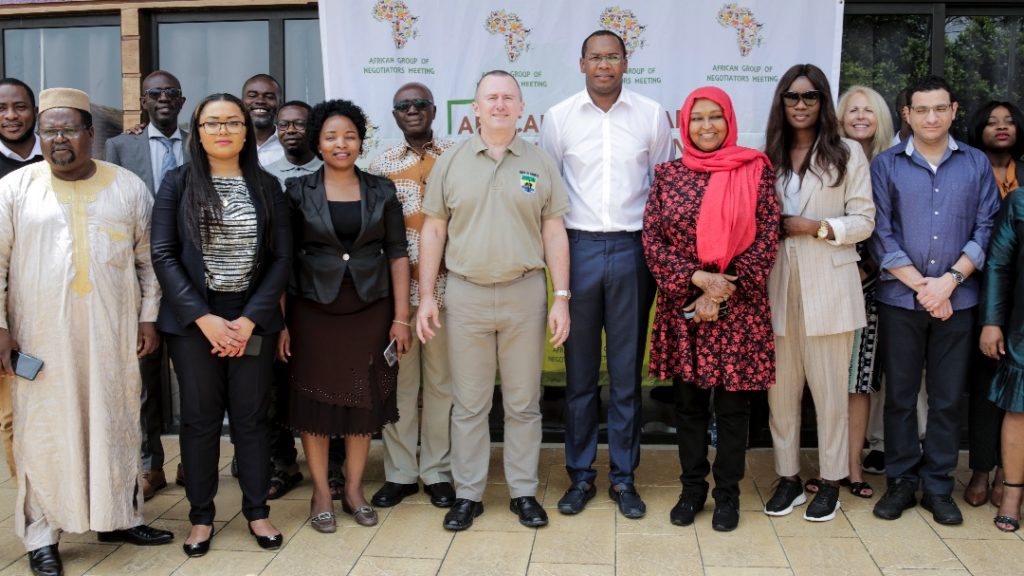
A Showdown Over Net-Zero Terms
In the first week of October, a dispute broke out at the 30th meeting of the board members of the Green Climate Fund (GCF). GCF was established in 2010 as a financing vehicle that would help developing countries address climate-change needs.
The re-accreditation of the Development Bank of Southern Africa (DBSA) to the GCF fell through because GCF board member Lars Roth required the DBSA accept net-zero targets, according to TWN’s account of the meeting. Roth is affiliated with the Swedish Ministry for Foreign Affairs.
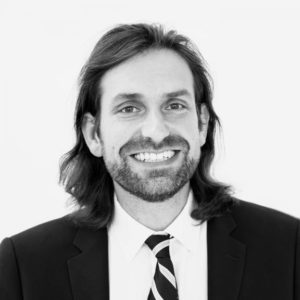
“Institutions like DBSA are key to the southern African region in terms of implementing their NDCs [nationally determined contributions under the Paris Agreement],” Fakir said.
However, TWN reported Roth tried to impose conditions on GCF members like a long-term net-zero target by the year 2050, an intermediate net-zero target for 2030, as well as shifts in overall investment and loan policies away from fossil fuels.
Board members from developing countries objected to these conditions.
Roth told this reporter the main reason DBSA was not re-accredited is the GCF board wasted time on “procedural discussions.” The bank’s re-accreditation was the final item on the meeting’s agenda. “We ran out of time to iron out remaining differences,” Roth said.
But Roth wanted the DBSA re-accreditation to be postponed irrespective of the substance of the discussions, said AGN advisor Richard Sherman. He added Roth’s was a deliberate move to put pressure on the DBSA to make a public statement regarding net zero and fossil-fuel investments.
Sherman also added the GCF board’s policy for accreditation and re-accreditation does not include any provisions “beyond an expectation that the portfolio of the entity would evolve and it does not provide any guidance on how to measure such a shift.” In essence, the provisions do not require net-zero commitments and fossil-fuel phaseouts.
The GCF did not respond to whether net-zero commitments are necessary for accreditation purposes.
This issue also shines light on the heart of the problem. That developing countries are expected to show greater ambition on climate action, while not being provided with the support to execute.
Article 2 of the Paris Agreement speaks of “equity and the principle of common but differentiated responsibilities and respective capabilities, in the light of different national circumstances.” This means each country is required to take action aligned with its historical responsibilities and current capabilities. The entire African continent has contributed only 3 percent to cumulative emissions since the Industrial Revolution, as opposed to the EU, which has contributed 22 percent.
The proposal to not re-accredit DBSA could be considered discrimination and therefore not in line with the Paris Agreement. The other issue is banks like DBSA that finance projects in developing countries are core to both their general infrastructure needs as well as a just transition away from fossil fuels.
“One of the key achievements of developing countries in the GCF process was having direct access modality,” Fakir explained. Here, “direct access modality” refers to the possibility of national and regional institutions (institutions other than the UN and World Bank) to be accredited to the GCF to act as vehicles to finance climate-related projects across developing countries. DBSA is one such institution. Therefore, the decision to not re-accredit the bank will impact a pipeline of projects across southern Africa.
“How will these countries transition [into clean-energy economies]?” Fakir asked.
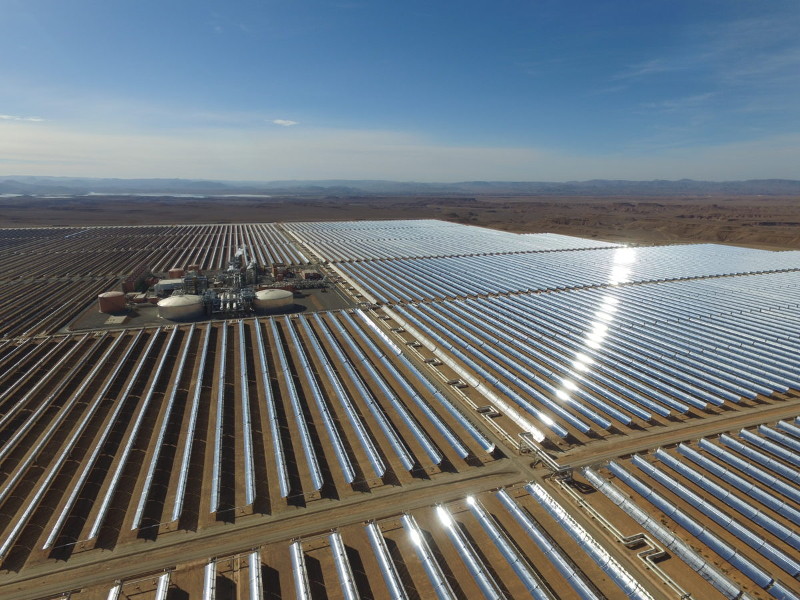
Lack of Finance Becomes a Barrier In Africa
All of the above detailed issues played out in the context of grave climate-driven disasters across Africa and increasing adaptation costs, which would require more GCF financing than ever before.
A new paper points to how climate finance from developed countries is heavily skewed towards mitigation despite Africa’s climate adaptation costs totalling around $7 to 15 (USD) billion per year and rising. Yet, the paper states that finance targeting mitigation was almost double that for adaptation.
The paper also highlights only 46 percent of financial commitments toward climate-adaptation measures are distributed. “If you want to have an impact on the ground, funding has to reach the communities on the ground,” said Georgia Savvidou, a researcher at Chalmers University of Technology in Sweden and the paper’s lead author.
The fund flows also are not in line with the Paris Agreement, which states countries should balance climate finance between mitigation and adaptation. Early this year even the UNSG stated 50 percent of climate finance should be towards adaptation.
“Around 60 percent of GCF financing, if not more, is directed towards mitigation,” Fakir noted. This despite GCF’s mandate to invest 50 percent of its resources to mitigation and 50 percent to adaptation. And even within such allocation, the fund is mandated to invest at least half of its adaptation resources in the most climate vulnerable countries like African states and least developed countries.
The paper also points to how the disproportionate mitigation financing is linked to European funding sources. In northern Africa, where 83 percent of finance commitments were directed to mitigation, around 65 percent of such funding originated from European donors, which includes two banks and the countries of France and Germany.
The authors suggest self-interest drives such financing:
“One mega-project in Morocco financed primarily by Germany accounts for 26 percent of the region’s total mitigation finance: The Noor Midelt Solar Power Project is one of the world’s largest solar projects to combine hybrid concentrated solar power and photovoltaic solar. Morocco’s proximity to Europe means it could potentially export significant amounts of renewable power northwards, and in doing so help Europe to achieve its climate neutrality targets.”
To de-link donor interest in bilateral climate funding, the authors suggest direct access modalities like Adaptation Fund and GCF as one option. “These funds are better at reaching the most vulnerable countries,” Savvidou said. But, as laid out above, the integrity of GCF processes remains in question.
Rishika Pardikar is a freelance journalist in Bangalore, India.
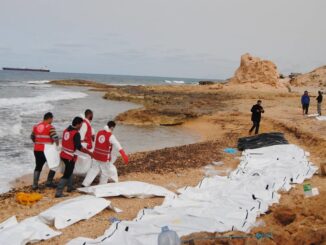
Bodies of Africans Wash Up on Libya’s and Tunisia’s Shores
MORE AFRICAN BODIES WASH UP IN LIBYA
Don’t normalise Africans dying while attempting to cross the Mediterranean. Dozens of bodies have now washed up in Libya, a day after the same happened in Tunisia. pic.twitter.com/A83tv9wXQe
— African Stream (@african_stream) April 26, 2023
Editor’s Note: This video report was produced by African Stream.
